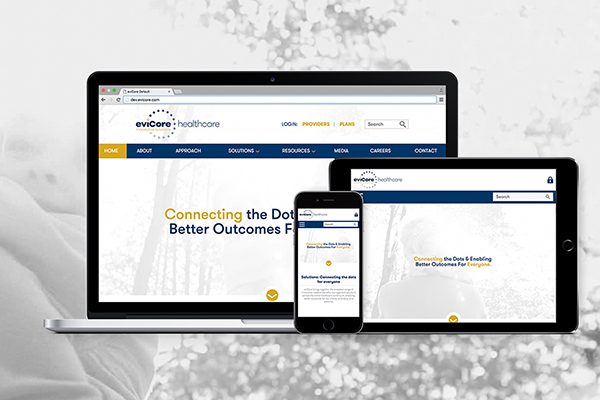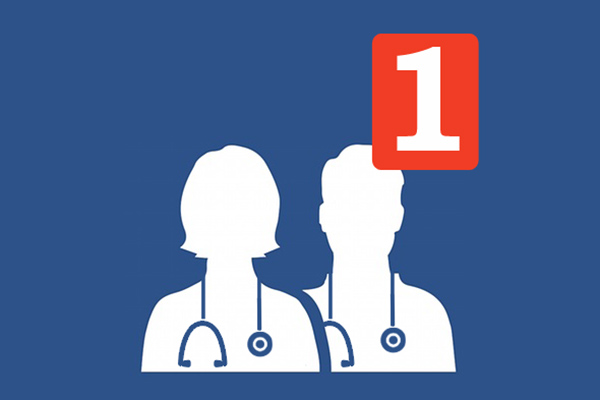When you think of the healthcare industry, digital marketing rarely comes to mind. What does however, are those dull medicine pamphlets and posters we would read while sitting in our doctor’s waiting rooms. This might have been the case a few years ago, but now with close to 287 million internet users in the U.S.A, healthcare digital marketing is actually a pretty significant topic to be discussed. Anywhere from arthritis treatment commercials being advertised on web pages to hip-replacement surgery promotions of Facebook, you’re beginning to see it everywhere. You might ask yourself a few questions:
- What exactly is going on?
- What’s this digital evolution that we’re slowly being introduced to?
- What direction is the healthcare industry headed towards?
Patient? I Think You Mean Consumer
It’s not just the doctors and marketers who are changing the ways in which the healthcare industry advertises, it’s mostly from the behaviors of consumers. According to Pew Research Center, 72% of internet users say they looked online for health information within the past year. The same study showed that 77% of online health seekers say they began their last session at a search engine such as Google, Bing, or Yahoo. We all go to panic mode when we search on WebMD simple ailments like a cough or sore throat, only to find out that we probably have smallpox. The reality of today is that the internet is a gateway for consumers seeking medical advice. Healthcare web development allows this interaction to take place.
This case study by Aumcore, best explains how a digital marketing agency can aid in medical website development. EviCore, a B2B specialty benefit management company who’s a leader in the online healthcare business, needed an update for their website. They wanted a layout that made their business differentiated from other providers. With help from a digital agency, eviCore’s website was made more clean, simple, and easy to use for customers. This is part of a collection that reinforces healthy practices for industry-specific marketing.

This is just one example of how the industry is beginning to invest in making their brand more noticeable on the Internet. Content is another key factor in this process. People want to read educational material in the style of blogs, articles, videos, etc. Patients used to find out about healthcare businesses through print or recommendations. Now consumers are learning on the Internet about how technology is advancing the way heart surgeries are done and how drinking more coffee has health benefits, to name a few. This is where that initial interest is started. Creating personalized experiences for the patient is the essence of content marketing.
My Doctor Has a Facebook?
With more and more consumers researching on the Internet about issues regarding their health, it has become quite evident that global healthcare companies need to take note. Fortunately, they have. Hospitals, doctors, and even pharmaceutical companies have moved their business to the epicenter of online interactions; Social Media.
Social media marketing for healthcare is now a fairly large business in its own right. One third of consumers now use social media sites such as Facebook, Twitter, YouTube, and online forums for health-related matters. People want to take a more active role in their own health decisions. Due to the amount of trust they put into the Internet, people want to acquire tips and advice from their social network. A study performed by searchenginewatch.com, states that 90% of respondents from 18 to 24 years of age said they would trust medical information shared by others in their social networks. These aren’t posts that have titles like, “How to Lose 50 Pounds in 15 Minutes!” As humans, we’ve grown accustomed to ignore advertising that is truly too good to be true. Informative and educational panels is what consumers look at and are potential marketing tactics that a digital marketing agency would use.
Platforms such as Facebook, have review systems where users can give and see specific experiences people have had with certain physicians/hospitals. This makes for a better informed patient. Social Media is a proactive form of communication between physicians and people seeking medical advice. 60% of doctors say social media improves the quality of care delivered to patients. Patients get a better understanding of what their symptoms are and possibly what their illness could be, which helps a physician’s diagnosis. People are comfortable with social media and if doctors on these platforms can prove to be a satisfying source for treatment, they’ll be the one chosen.

A Mobile Phone is a Physician’s Best Friend
It’s no secret that in today’s society, cell-phones are almost like any other body part. We always need to have it and when we don’t, we can’t help to fight the feeling that something’s missing. Cellphones do more than just tell us who liked our latest Instagram picture, they’re now beginning to be a health necessity. Mobile healthcare is the irrefutable lead in this shift and the future of healthcare marketing. This study by greatcall.com found that there are over 97,000 mobile apps related to health & fitness, 4 millionfree & 300,000 paid downloads per day, and by 2017 the total mobile health market revenue will reach $26 billion. This business is booming to say the least. Due to technological advances from smartphones, people are now able to use their mobile phones to check social media for health advice, prescription help, exercise, and nutrition. The same study showed that 93% of physicians believe that mobile health apps can improve a patient’s health and more than 25% of physicians are using mobile technology to provide patient care.
The healthcare industry is beginning to realize what an important marketing opportunity this can be. Hospitals, doctors, nutritionists, etc. all are making their businesses more mobile friendly. No one wants to scroll through websites that aren’t designed for cellphones, especially if a person’s health isn’t great. This is the importance of designing your sites accordingly and possibly even getting help from a digital agency for maximized and positive results.
Healthcare, slowly but surely, is making its name to mainstream digital marketing. The already giant business, will grow even larger with more time in developing online patient relations and software applications. The next question everyone will be asking is:
- What’s the next industry that will see a huge upswing in digital marketing?
That’ll be a blog post for a later time.





Tell us your thoughts in the comments